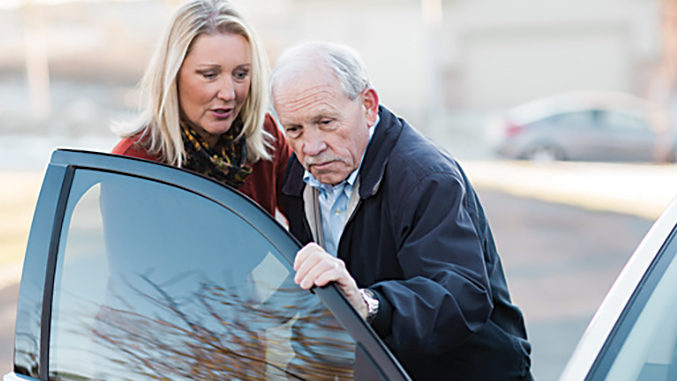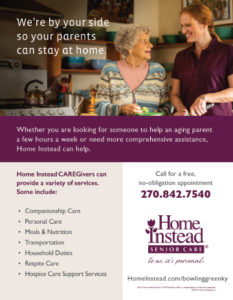
As the days get shorter and darkness falls earlier, more seniors are hesitant to drive after daylight fades, especially in inclement weather conditions. If an older adult feels uncomfortable driving and is willing to hang up their keys, that’s one thing. However, most of the time older adults might desire to continue driving beyond a point that is safe for themselves or others on the road. If you are considering giving up your car keys or are the adult child of a senior and you are concerned about his or her ability to continue driving safely, chances are you need to have a conversation about this life change. However, it can be uncomfortable to discuss this matter.
While nearly one-third of surveyed seniors age 70 and older who were still driving said that a recommendation from a family member or friend might make them reconsider driving, most of these older adults, 95% in fact, have not had these conversations.
Fear can keep families silent, but avoiding the conversation doesn’t make the issues go away. There are lots of options out there when seniors do give up driving.
It’s important to not jump to a conclusion that your loved one might need to stop driving without evidence that he or she is truly unsafe. There are warning signs that indicate a senior might be unsafe on the road. Look for these ten warning signs before discussing the possibility of handing over the car keys.
- Mysterious Dents: If an older adult can’t seem to explain that dent or you notice multiple instances of damage, further investigation may be needed.
- Trouble Turning to See When Backing Up: The issues of aging could compromise mobility and
 , in turn, certain important movements needed to drive safely, like looking over the shoulder.
, in turn, certain important movements needed to drive safely, like looking over the shoulder. - Confusing the Gas and Brake Pedals: If a senior is getting confused about how his or her vehicle operates, it could be time to give up the car keys.
- Increased Irritation and Agitation When Driving: Poor health or chronic pain from conditions such as arthritis can trigger increased agitation.
- Bad Calls on Left-hand Turns: Turning left can be tricky and dangerous for older adults who may have experienced a decline in cognitive abilities.
- Parking Gone Awry: Difficulty parking, including parallel parking, could cause damage to an older adult’s vehicle as well as those vehicles around it.
- Difficulty Staying Within the Lanes: It could be a sign that fatigue or vision problems are making it difficult to stay the course.
- Delayed Reaction and Response Time: Safe driving depends on quick reaction times. Issues of aging can slow those response times.
- Driving the Wrong Speed: Driving too fast or too slowly are indicators that a driver’s judgment may be impaired.
- Riding the Brake: Riding the brake could be a sign that a driver no longer has confidence in his or her skills.
When a senior does decide to give up driving, there are ways to make the transition easier. Be prepared with new options. Ask family and friends if they are willing to provide transportation. Research senior paratransit services. Carpool with other adults. Call Home Instead Senior Care; our professionally trained CAREGivers provide transportation to a 10-county area. Make it fun! Use the budget a senior used to maintain a vehicle to hire a driver to provide transportation. Focus on activities that do not require transportation. Consider focusing on gardening, walking, reading, and arts and crafts.
If you are a senior who is still driving, consider the following to maintain your independence:
- Do all you can to be safe: Take a class from AARP on safe driving called CarFit. CarFit is designed to help older drivers maintain safety while driving.
- Get the facts: Any decision should be based on data. Get a physical exam, take a driving self-assessment and get frequent vision checks.
- Listen and communicate: Listen to your family if they are concerned about your driving. Develop a plan together for a new approach to driving or to giving up driving.
- Create a plan with alternatives: Most seniors drive to get groceries and other goods and to visit friends and relatives. Research grocery stores that provide delivery services or pick-up services. Home Instead Senior Care can assist with transportation to grocery stores as well.
For more information, visit LetsTalkAboutDriving.com. Feel free to call 270-842-7540 to talk to a Home Instead Senior Care representative today!



